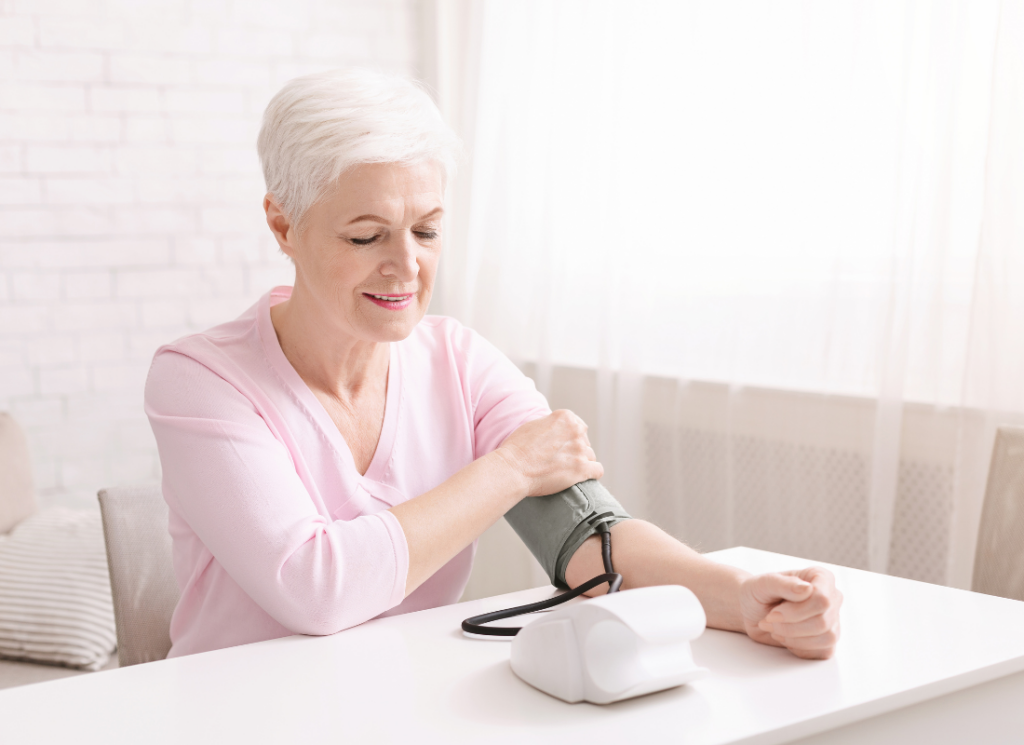(Reading time 2 minutes and 1 seconds) As people age, it’s natural for blood pressure to fluctuate due to bodily changes and potential health concerns. However, managing blood pressure, especially in those over 60, requires caution. Abruptly lowering blood pressure can lead to fainting or falls and worsen existing health issues like heart problems. Additionally, traditional blood pressure measurements at the doctor’s office may not be accurate due to factors like white coat syndrome. Therefore, monitoring blood pressure at home is crucial. Beyond medication, maintaining cognitive health through activities that exercise memory and concentration is important. Dietary adjustments, like reducing intake of high-salt pickled foods, and regular eye check-ups are also essential for individuals with hypertension. Overall, a holistic approach to managing hypertension is necessary for optimal health outcomes.
Table of content:
- Avoid reducing blood pressure too abruptly
- Blood pressure readings taken at the doctor’s office may not be entirely accurate
- Exercise your memory and focus
- Maintain good vision with hypertension
- Avoid aspirin or ibuprofen with hypertension
As individuals age, it’s entirely typical for blood pressure to increase due to the natural progression of the body and potential health issues that may arise over time.
Avoid reducing blood pressure too abruptly
Especially after reaching the age of 60, it’s advisable to refrain from sudden interventions in lowering blood pressure. Doing so could increase the risk of fainting or falls. Fluctuations in blood pressure can exacerbate health conditions, such as heart or kidney problems. Typically, in women, blood pressure begins to rise during menopause, typically by an average of 5 mm, and it’s not recommended to combat this increase.
Blood pressure readings taken at the doctor’s office may not be entirely accurate
During medical appointments, it’s common for individuals to experience heightened tension, resulting in increased blood pressure readings during routine checks. This phenomenon, known as white coat syndrome, affects many patients. Consequently, blood pressure measurements taken in a relaxed home environment hold greater importance and reliability.
Exercise your memory and focus
Hypertension can lead to minor brain injuries, contributing to the development of memory issues and dementia, including Alzheimer’s disease. Therefore, it’s essential to not only treat hypertension but also prioritize cognitive health.
How to achieve this?
- Engage in activities like solving crossword puzzles.
- Read 10-15 pages from a book or newspaper daily.
- Create and memorize shopping lists.
- Draw simple pictures daily.
- It’s crucial to limit consumption of pickled foods.
While pickled foods are generally considered healthy, they contain high levels of salt, which individuals with hypertension should minimize. However, this doesn’t necessitate complete avoidance; instead, limit consumption to 1-2 times per week.
Maintain good vision with hypertension
Hypertension can lead to retinal changes, initially manifesting as mild headaches, eye itching, and eyelid irritation. Left untreated, this could progress to conditions like glaucoma or even vision loss. Therefore, regular eye examinations by an optometrist are crucial for those with hypertension.
Consume 3 soaked almonds every other day for improved eyesight and lower blood pressure.
Avoid aspirin or ibuprofen with hypertension
Medications like Acard, Cholinex, Polopiryna, Ibufen, Nurofen, Ketonal, and Aspirin can interfere with hypertension treatments, rendering them ineffective. Instead, opt for paracetamol when experiencing pain.

